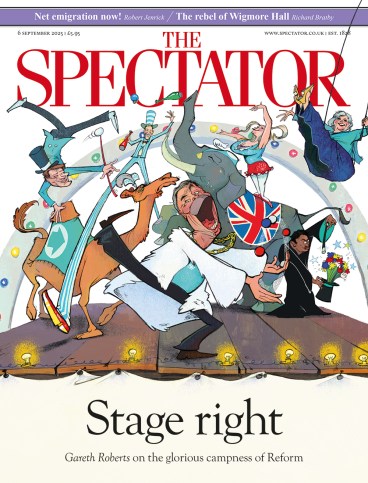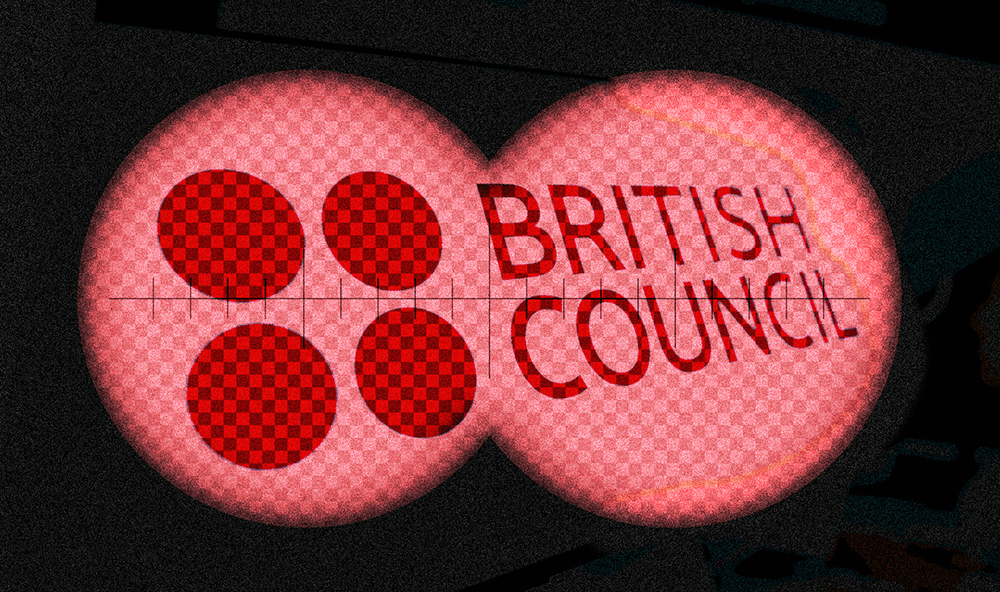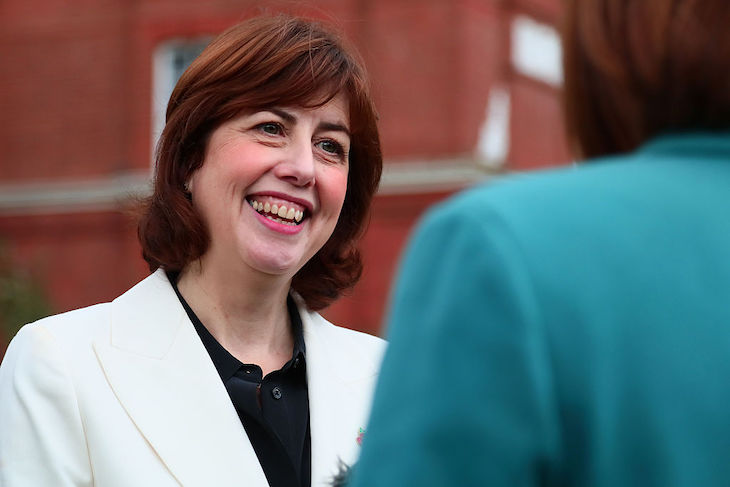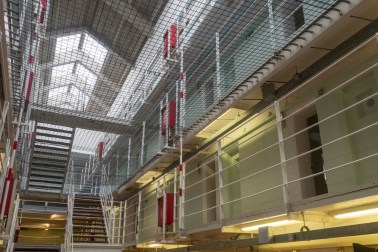
I worked for nearly a decade at the British Council in East Asia. Every day, under the guise of teaching English and promoting awareness of British culture abroad, I would compile dossiers on people of interest, take pictures of government buildings and military installations and pass secret documents to couriers to smuggle back to Britain. I would sometimes meet contacts in parks where we would have brief, cryptic conversations beginning with a code line like ‘The geese are flying south early this year’, without ever directly looking at each other.
Except of course I did none of these things and neither, I am convinced, did anyone else. Which puts me at odds with Vladimir Putin, who claims that the British Council is a ‘nefarious nest of espionage’ and thus a legitimate target for bombing – as witnessed in Russia’s strike on the BC’s office in Kyiv last week. This is not the first time Putin has targeted the council. The staff of the St Petersburg offices were harassed in 2008 (the head, Stephen Kinnock, now a Labour MP, was arrested). There is nothing very funny about these assaults, but Putin’s delusions about the council are risible.
For one thing, there is the staff. One of the most noticeable things was how unpatriotic most of them were. In Tokyo, the most pro-British people in the office were the Japanese, who were bemused by the cynicism of the staff towards their native land. I worked with many fine, talented people at the council but the idea of any of them spying for the UK is unlikely. Against, maybe, but not for.
This mindset seemed to align with the organisation overall. During my time, every last vestige of ‘Britishness’, from the restaurant (tea and scones) to the culture classes, were replaced by images and projects that seemed to promote a very un-British vision of Britain. We were strongly discouraged from peddling material considered ‘typically British’ in a traditional sense. The idea of hanging a picture of the Queen in the lobby would probably have sparked a walkout.
I was in a tiny minority of patriotic conservatives and so I kept my views to myself. Perhaps the only other dissident made a near-fatal error once of forwarding to his fellow teachers a petition against the building of a mosque in Yorkshire with public money, for which he almost lost his job. The council has even provoked controversy for tacitly endorsing the censorship of the Chinese government.
Then there is the question of competence. Conducting espionage under the cover of what were largely language schools would have taken a degree of professionalism incongruous with the chaotic organisation I worked for, where scandals abounded. One of the largest European centres spent years in dispute with its own teachers after a manager was, so the story goes, taken out drinking and signed ridiculously generous contracts for full-time teachers. Just this year a zero-hours contract scandal involving council teachers in several countries has caused considerable embarrassment. It’s a far cry from James Bond’s Universal Exports.
All this is not to say the British Council has never been used for intelligence gathering. It was established in 1934 as a non-political cultural organisation, but its vague remit was viewed with suspicion from the start. After all, the council was involved with trade fairs and government missions, so it would have been surprising if the spooks hadn’t occasionally tapped up the staff to see if they had picked up any useful titbits. It may be significant that various informed spy-thriller writers over the years have hinted at a cloak and dagger element to the council’s activities. In John le Carré’s 1989 novel The Russia House the British Council plays a leading role. Le Carré had worked for the intelligence services under his real name, David Cornwell. Then there’s Graham Greene, who was also an MI6 operative, who incorporated the council into The Third Man. Olivia Manning’s Fortunes of War series also references the council in a way that suggests there may have been more than its stated functions, while George Orwell once criticised it for spreading propaganda.
But this is all long in the past and hard to relate to the British Council as it exists today. Kingsley Amis’s dismissal of its work as the ‘projection of British irrelevance abroad’ is probably more accurate. If Putin is in earnest with his suspicions, it is probably further proof that he retains an ossified Cold War mentality. Either that or it’s entirely personal, and Putin is working out his frustrations at his reported lifelong failure to master English.








Comments